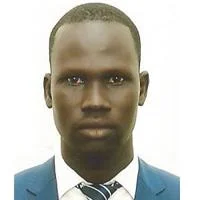Hunger and Human Dignity
The politics of hunger courts in South Sudan
LSE Principal Investigator: Naomi Pendle
Co-investigator: Jok Madut Jok
Researcher: Abraham Diing Akoi
Researcher: Awien Mou
Researcher: Ngot Mou
Researcher: Julia Luka Joseph
Hundreds of millions of people remain chronically hungry and famines persist worldwide. Extreme hunger does not only threaten life, but it can also remove human dignity from the living and the dead. Vibrant ethnographic work has shown how people living through hunger support each other. However, almost no attention had been paid to the use of legal norms and institutions in times of extreme hunger. Scholarship and policy, therefore, ignored the potential for legal norms to shape the relationship between hunger, social responsibility and dignity.
This project supported policymakers and practitioners to respond to famine in South Sudan and beyond.
This research explored these questions through a study of South Sudanese hunger courts – chiefs’ courts that redistribute food to the hungriest people. Using historical, ethnographic and quantitative methods across four sites in South Sudan, our predominantly South Sudanese team explored the socio-legal construction of norms of welfare and dignity, as well as social hierarchies and inequities.
Researchers

Naomi Pendle
Dr Naomi Pendle focuses on public authority, extreme hunger, patterns of violence and local governance in South Sudan. Naomi has conducted ethnographic research in South Sudan since 2009.
Email: N.R.Pendle@lse.ac.uk

Abraham Diing Akoi
Abraham Diing Akoi began his formal education in Kakuma Refugee Camp, Kenya before graduating with an LSE Masters in Development Studies. He is part of the PfAL network.
Research interests: return and displacement, public authority
Email: abramdiing@gmail.com
Ngot Mou
Ngot is an experienced qualitative researcher who has worked on a range of studies on the histories and logics of public authority in South Sudan. He also has experience in oil field environmental remediations and has previously worked in the NGO sector in South Sudan.
Email: ngotmouce@gmail.com

